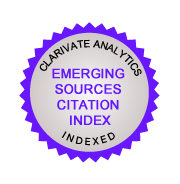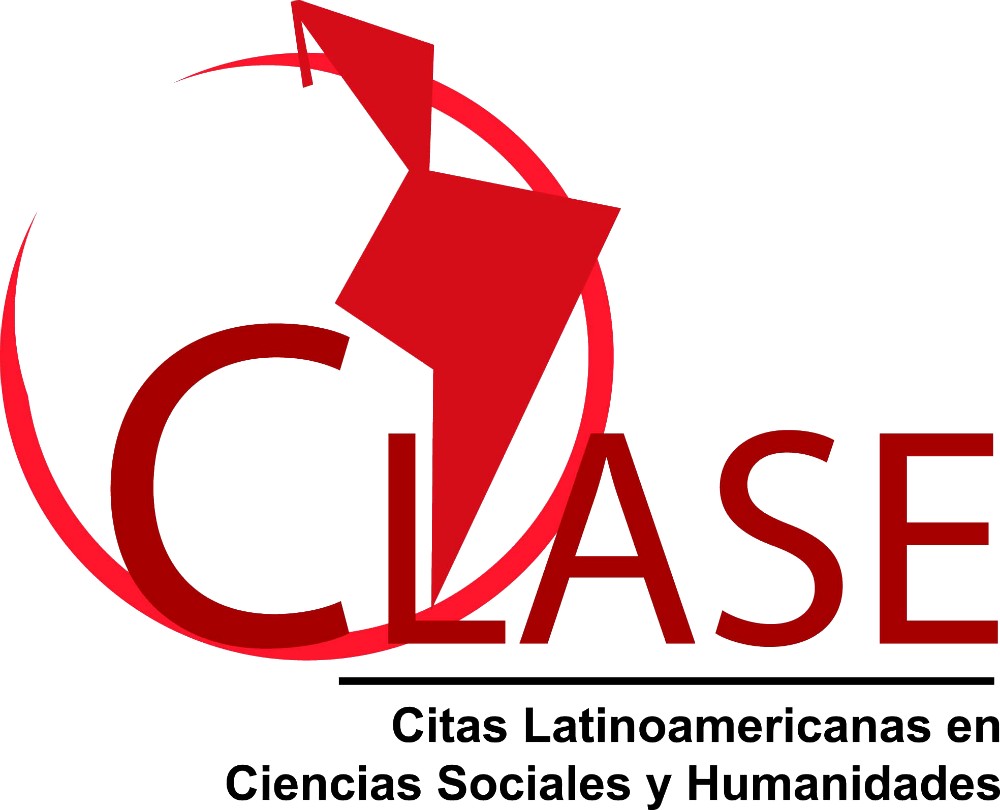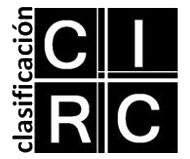Some reflections on the doctrinal reasons for the paleolibertarian attack on Argentine public science
DOI:
https://doi.org/10.24215/16696581e926Keywords:
paleolibertarianism, public science, cultural battle, far right, CONICETAbstract
In this essay I explore some doctrinal reasons for the Argentine government's attack on public science and, in particular, on the social sciences. It takes place within the framework of a cultural, political and economic battle of a far-right government, which declares itself ideologically (paleo)libertarian. From this point of view, the existence of public research and education cannot be justified, since, on the one hand, they are financed by taxes that are by definition expropriatory and, on the other, they serve to legitimize a statist outlook that they seek to combat. The latter would be particularly true in the case of the social and human sciences, since their social utility cannot be measured in economic or quantifiable terms. From the paleolibertarian perspective, taxes or monetary emission, which could be used to finance public S&T institutions, are considered a theft from the owners in order to maintain ‘parasites’, propagandists of the ‘statist mafia’ and propagators of ‘cultural Marxism’. In this framework, public issues such as climate change, crime or epidemics are denied or addressed under a mercantile and privatist logic. In this sense, it could be said that, rather than rejecting science tout court, libertarians and conservatives reject those that demonstrate the need for state action. Against this position, I argue that the existence of common problems to which the market cannot provide satisfactory answers makes necessary the contribution of public science in general and of the social and human sciences in particular.
Downloads
References
Dalmau, I. (2023) En defensa de las ciencias (sociales y humanas), PoDeS, https://podes-iigg.sociales.uba.ar/2023/12/20/en-defensa-de-las-ciencias-sociales-y-humanas/
Davies, W. (2016). The New Neoliberalism. New left review, 101, Nov–Oct 2016, 121–134.
Forti. S. 2021. Extrema derecha 2.0. Qué es y cómo combatirla. Madrid: Siglo XXI.
Foucault, M. 2000. Defender la Sociedad. Buenos Aires: Fondo de Cultura Económica.
Graff, A. & Korolczuk, E. 2022. Anti-gender politics in the populist moment. Routledge studies in gender, sexuality and politics. Abingdon Oxon, New York NY: Routledge.
Gregis Estivalet, A. & Dvoskin, G. 2022. Education, Sexuality and Anti-gender Movements in Latin America. Gender a výzkum / Gender and Research, 22(2), 28–44. https://doi.org/10.13060/gav.2021.018
Grimes, D. (2014). Libertarian ideology is the natural enemy of science, The guardian, 29 Aug 2014, https://www.theguardian.com/science/blog/2014/aug/29/libertarian-ideology-natural-enemy-science
Hardin, G. (1968). The tragedy of the commons. Science 162(3859), 1243–1248.
Hayek, F. (1944). Camino de servidumbre. Madrid: Alianza.
Hoppe, H.-H. (1993). Economía y ética de la propiedad privada, Instituto Mises. https://www.mises.org.es/2015/01/economia-y-etica-de-la-propiedad-privada/
Hoppe, H.-H. (1993b). Sobre la praxeología y la base praxeológica de la epistemología, en Economía y ética de la propiedad privada, Instituto Mises. https://www.mises.org.es/2015/01/economia-y-etica-de-la-propiedad-privada/
Hoppe, H.-H. (2001). Democracia. El dios que fracasó (ebook) https://www.mises.org.es/wp-content/uploads/2016/03/democracia-el-dios-que-fracaso-hoppe.pdf
Instituto Juan de Mariana (2016). ¿Realmente es el Estado el impulsor de la investigación básica y la innovación?, Madrid: Instituto Juan de Mariana.
Kaiser, A. 2014. La fatal ignorancia: La anorexia cultural de la derecha frente al avance ideológico progresista. Madrid, Santiago de Chile: Unión Editorial; Fundación para el Progreso.
Kaiser, A. 2020. La neoinquisición: Persecución, censura y decadencia cultural en el siglo XXI, Deusto (ebook).
Kealey, T. (2020). We don’t need government to fund scientific research, Libertarianism.org, Mar 31st, 2020, https://www.libertarianism.org/essays/libertarian-vision-for-funding-science
Laje Arrigoni, A. 2022. La batalla cultural: Reflexiones críticas para una nueva derecha. Ciudad de Mexíco: HarperCollins México.
Laje Arrigoni, A.; Márquez, N. 2016. El libro negro de la nueva izquierda: Ideología de género o subversión cultural (Primera edición). Buenos Aires: Grupo Unión.
Mazzucato, M. (2014) El Estado emprendedor. Mitos del sector público frente al sector privado. Barcelona: RBA.
Méndez, P. (2023). El neoliberalismo argentino y sus antagonistas políticos. El caso de Álvaro Alsogaray. Sociohistórica (51), e185. En Memoria Académica. Disponible en: https://www.memoria.fahce.unlp.edu.ar/art_revistas/pr.15474/pr.15474.pdf
Milei, J. (2014) De los picapiedras a los supersónicos. Maravillas del progreso tecnológico con convergencia. Actualidad Económica, Año XXIV, Nº 83 – Mayo / Agosto 2014, pp. 5-18. https://revistas.unc.edu.ar/index.php/acteconomica/article/view/9532/10301
Milei, J. (2022). El camino del libertario, Planeta (ebook).
Mises, L. v. (1968). Socialismo. Buenos Aires: Instituto Nacional de Publicaciones de Buenos Aires, Argentina, 1968.
Morán Faúndes, J. M. 2019. The geopolitics of moral panic: The influence of Argentinian neo-conservatism in the genesis of the discourse of ‘gender ideology’. International Sociology, 34(4), 402–417. https://doi.org/10.1177/0268580919856488
Morresi, S. et al (2023). El pueblo mileísta, Anfibia, UNSAM.
Oreskes, N & Erik M. Conway; From Anti-Government to Anti-Science: Why Conservatives Have Turned Against Science. Daedalus 2022; 151 (4): 98–123. doi: https://doi.org/10.1162/daed_a_01946
Rockwell, L. (1990). The Case for Paleolibertarianism. Liberty Magazine 3(3), 34–38.
Rothbard, M. 2016. Populismo de derecha: Una estrategia para el movimiento páleo, en Centro Mises, https://www.mises.org.es/2016/10/populismo-de-derecha/
Rothbard, M. 2019. Ciencia, tecnología y gobierno, Auburn: Instituto Mises, https://cdn.mises.org/Ciencia%20tecnolog%C3%ADa%20y%20gobierno.pdf?token=AAk6Ebdz
Slobodian, Q. (2023) Crack-Up Capitalism. Market Radicals and the Dream of a World Without Democracy, Nueva York: Metropolitan Books.
Stefanoni, P. 2021. ¿La rebeldía se volvió de derecha? Cómo el antiprogresismo y la anticorrección política están construyendo un nuevo sentido común (y por qué la izquierda debería tomarlos en serio). Buenos Aires: Siglo XXI
Downloads
Published
How to Cite
Issue
Section
License
La aceptación de un original por parte de la revista implica la cesión no exclusiva de los derechos patrimoniales de los/as autores/as en favor del editor, quien permite la reutilización, luego de su edición (postprint), bajo una Licencia Creative Commons Atribución-NoComercial-CompartirIgual 4.0 Internacional (CC BY-NC-SA 4.0)
Acorde a estos términos, el material se puede compartir (copiar y redistribuir en cualquier medio o formato) y adaptar (remezclar, transformar y crear a partir del material otra obra), siempre que a) se cite la autoría y la fuente original de su publicación (revista y URL de la obra), b) no se use para fines comerciales y c) se mantengan los mismos términos de la licencia.
La cesión de derechos no exclusivos implica que luego de su edición (postprint) en Question las/os autoras/es pueden publicar su trabajo en cualquier idioma, medio y formato; en tales casos, se solicita que se consigne que el material fue publicado originalmente en esta revista.
Tal cesión supone, también, la autorización de los/as autores/as para que el trabajo sea cosechado por SEDICI, el repositorio institucional de la Universidad Nacional de La Plata, y sea difundido en las bases de datos que el equipo editorial considere adecuadas para incrementar la visibilidad de la publicación y de sus autores/as.
Asimismo, la revista incentiva a las/os autoras/es para que luego de su publicación en Question depositen sus producciones en otros repositorios institucionales y temáticos, bajo el principio de que ofrecer a la sociedad la producción científica y académica sin restricciones contribuye a un mayor intercambio del conocimiento global.















































